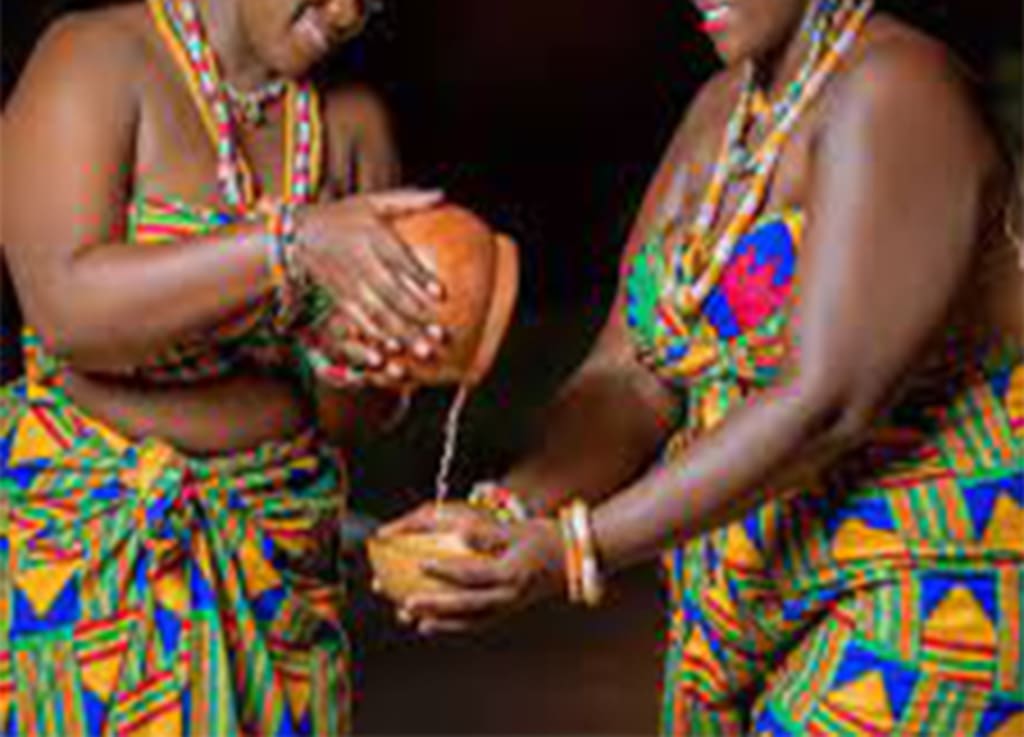History of Akans
Akan Diverse Historical Journey

The Akans are an ethnic group in West Africa, primarily concentrated in Ghana and Ivory Coast. They make up the largest ethnic group in Ghana, comprising several subgroups, including the Ashanti, Fante, Akuapem, and Akyem. The history of the Akans is marked by ancient civilizations, powerful kingdoms, and interactions with European colonial powers. Here is an overview of the history of the Akans:
Origins and Ancient Civilizations:
The Akan people trace their origins to the Bono state, which existed around the 11th century AD in present-day Ghana. The Bono state was one of the earliest Akan kingdoms, and its people migrated and established various subgroups. The Akan civilization flourished through agriculture, trade, and the development of sophisticated social and political structures.
Rise of the Ashanti Empire:
The Ashanti Empire, known as the Asante Kingdom, was one of the most powerful and influential Akan states. It emerged in the late 17th century in the central part of present-day Ghana. Under the leadership of powerful kings, such as Osei Tutu and Opoku Ware, the Ashanti Empire expanded its territory through military conquests, establishing control over gold-producing regions and trade routes. The empire reached its peak during the 18th and 19th centuries.
Ashanti-European Interactions:
The Ashanti Empire had significant interactions with European powers, particularly the British. The Ashanti controlled the lucrative gold trade, which attracted European merchants and traders. Initially, the Ashanti formed alliances with the Europeans for mutual economic benefits. However, conflicts arose over trade, territory, and attempts by the British to exert control. The Ashanti waged several wars, notably the Anglo-Ashanti Wars, against British colonial forces in the 19th century.
Colonization and Independence:
In the late 19th century, the British gradually gained control over the Ashanti Empire and the Akan regions, establishing the Gold Coast Colony. The Akan people, like other ethnic groups in Ghana, experienced the impact of European colonization, including the introduction of Christianity, Western education, and changes in political and economic systems. Ghana, then known as the Gold Coast, gained independence from British colonial rule on March 6, 1957.
Cultural Heritage and Contributions:
The Akans have a rich cultural heritage that encompasses language, art, music, and traditional customs. The Akan language, known as Twi, is widely spoken and is a major indigenous language in Ghana. Akan cultural practices, such as the adinkra symbols, kente cloth, and traditional festivals, are iconic representations of Akan identity and heritage. The Akans have also made significant contributions to Ghanaian society, including in politics, education, entrepreneurship, and the arts.
Today, the Akans continue to play a crucial role in Ghanaian society, contributing to the country's cultural, social, and economic development. They maintain a strong sense of identity, pride in their cultural heritage, and have preserved many of their traditional customs and practices.
The Ashanti
The Ashanti people, also known as the Asante, are an Akan subgroup in Ghana. The origin of the Ashanti can be traced back to the ancient Akan people who inhabited the region of present-day Ghana as early as the 11th century AD.
According to oral tradition and historical accounts, the Ashanti people trace their ancestry to a legendary figure named Osei Tutu. Osei Tutu was a powerful leader and the first Asantehene (King) of the Ashanti Empire. He is credited with uniting various Akan clans and establishing the foundation of the Ashanti Empire in the late 17th century.
Legend has it that Osei Tutu received a divine golden stool, known as the "Sika Dwa Kofi," from the heavens. The golden stool was believed to embody the spirit and soul of the Ashanti people, serving as a symbol of unity and political power. It became a central part of Ashanti identity and played a significant role in the empire's formation and governance.
Under Osei Tutu's leadership and subsequent Ashanti rulers, the Ashanti Empire expanded its influence and control over vast territories in present-day Ghana. Through military conquests, alliances, and diplomatic negotiations, the empire established itself as a powerful force in the region, controlling valuable gold-producing areas and dominating trade routes.
The Ashanti Empire reached its zenith during the reign of Ashanti kings such as Opoku Ware I, Osei Kwadwo, and Kofi Karikari in the 18th and 19th centuries. The empire's political organization was highly centralized, with the Asantehene at the apex of power and authority. The Ashanti Empire maintained a sophisticated system of governance, administration, and military organization.
The Ashanti Empire had significant interactions with European powers, particularly the British, who sought to control trade and resources in the region. The empire engaged in conflicts with the British colonial forces during the 19th century, known as the Anglo-Ashanti Wars. These wars eventually led to the British gaining control over the Ashanti Empire and the Akan regions, transforming it into a British protectorate.
Despite the loss of political sovereignty, the Ashanti people retained their cultural identity, traditions, and influence. Today, the Ashanti people are one of the largest ethnic groups in Ghana, and their cultural heritage, including the use of adinkra symbols, kente cloth, and traditional festivals, continues to be celebrated and cherished. The Ashanti Kingdom still exists as a traditional state, with the Asantehene serving as a significant cultural and spiritual leader for the Ashanti people.
About the Creator
Enjoyed the story? Support the Creator.
Subscribe for free to receive all their stories in your feed. You could also pledge your support or give them a one-off tip, letting them know you appreciate their work.





Comments
There are no comments for this story
Be the first to respond and start the conversation.